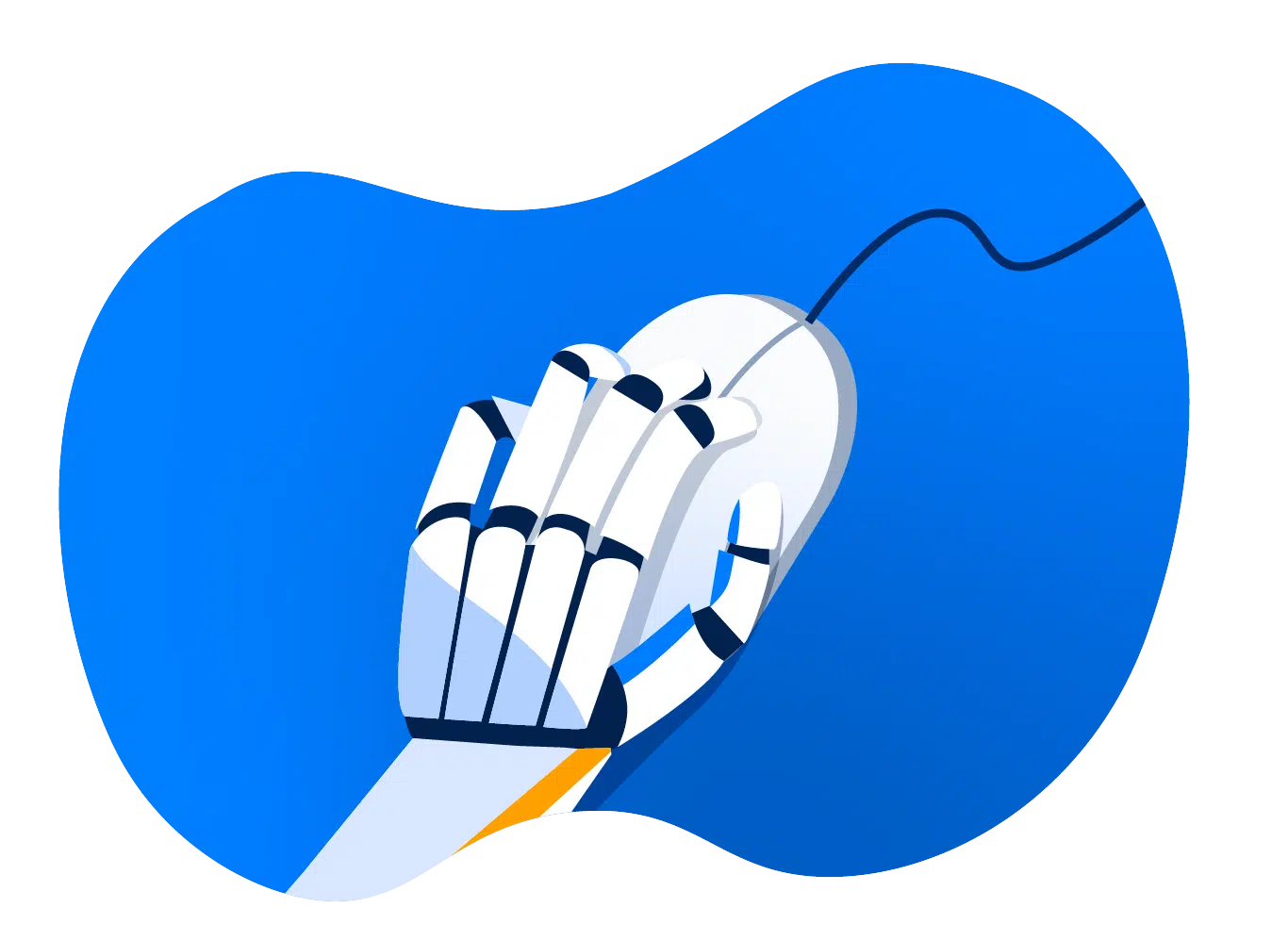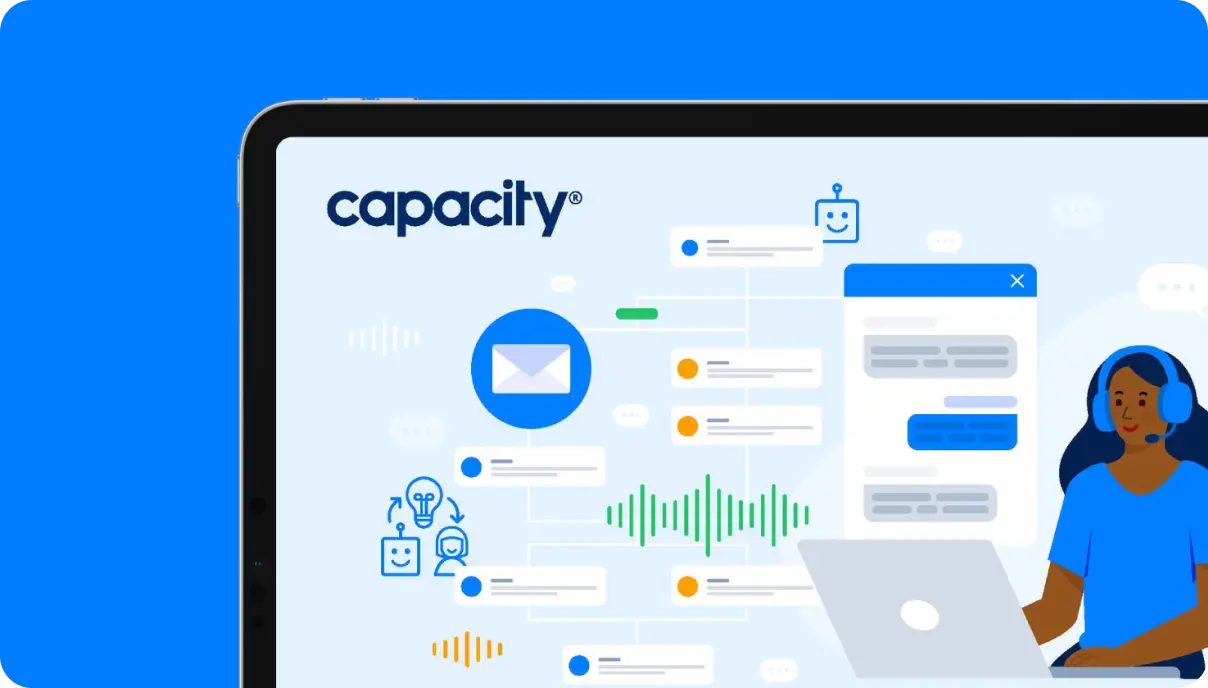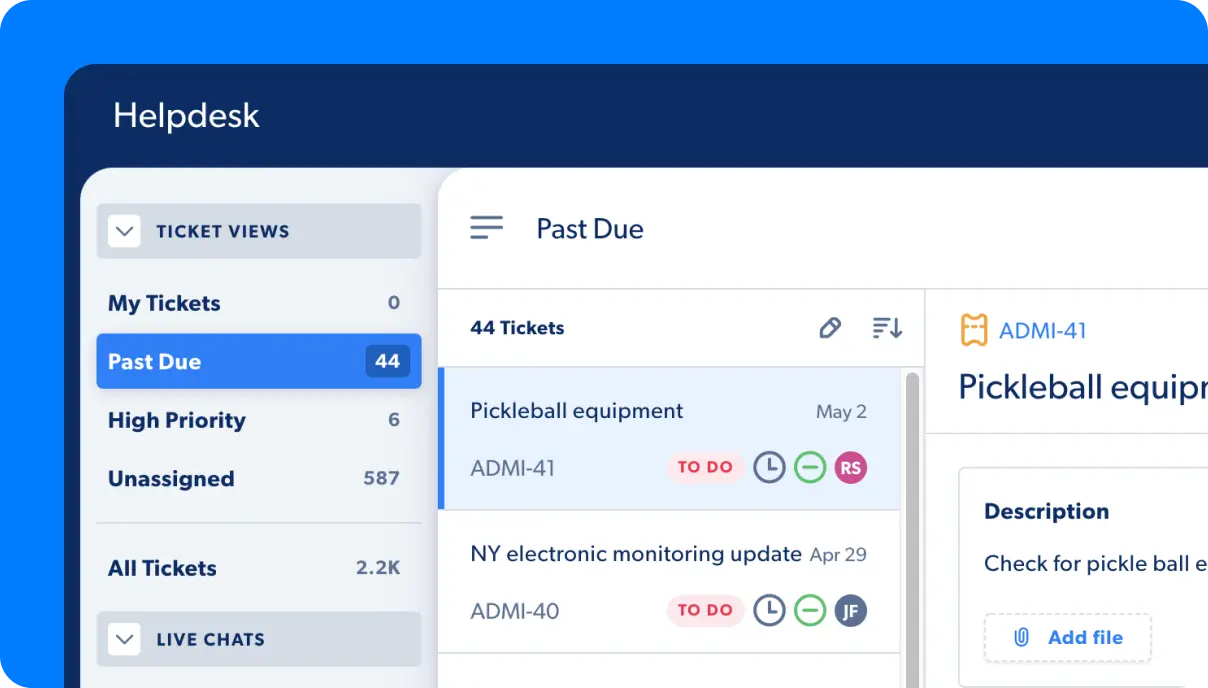In today’s business world, customer support is vital in creating and maintaining customer loyalty. Customers expect quick and practical solutions to their queries, complaints, and issues. Businesses that fail to provide exceptional customer support risk losing customers to their competitors. As a result, companies are constantly looking for new and innovative ways to improve their customer support processes. One such innovation is the use of chatbots for customer support. They are available whenever and wherever you need them and can handle multiple conversations simultaneously, which makes them a cost-effective solution for businesses.

Automate Your Work
Capacity’s enterprise AI chatbot can help:
- Answer FAQs anytime, anywhere
- Find relevant documents within seconds
- Give surveys and collect feedback
This article will discuss the benefits and challenges of using chatbots for support. We will explore their impact on customer experience, the potential for personalization and customization, and the importance of human intervention. Let’s get started!
What are chatbots for support?
Chatbots for support are AI-powered programs that simulate human interactions and provide automated chatbot customer support in real time. They are designed to answer customer queries, provide solutions to problems, and assist with support issues. Chatbots for support can be integrated into various platforms, such as a company’s website, social media channels, messaging platforms, and mobile apps. Using AI and natural language processing, chatbots can understand and respond to customer queries in real time, providing 24/7 support to customers.
Different types of chatbots for support
There are different types of chatbots for support, and each type has a unique set of features and capabilities. The three most common types of chatbots for support are rule-based chatbots, AI-powered chatbots, and hybrid chatbots. Let’s explain each one in detail:

1. Rule-Based Chatbots
Rule-based chatbots are the simplest form of chatbots. These chatbots are designed to follow predefined rules to respond to customer inquiries. They operate based on a decision tree,
where each answer leads to a new set of questions, and the AI chatbot provides the most relevant solution based on the input received. Rule-based chatbots handle basic customer inquiries like password resets, FAQs, or order tracking.
2. AI-powered Chatbots
AI-powered chatbots use natural language processing (NLP) and machine learning algorithms to understand and respond to customer inquiries. These chatbots are more advanced than rule-based ones and can handle complex queries and conversations, such as password resets, account updates, and employee onboarding. They learn from past conversations to improve their responses over time and provide a more personalized experience to customers.
3. Hybrid Chatbots
Hybrid chatbots are a combination of rule-based and AI-powered chatbots. They use predefined rules to handle basic customer inquiries and switch to AI-powered mode for more complex queries. Hybrid chatbots provide customers a seamless experience and ensure they receive the best possible support.
How do chatbots for support work?
Chatbots analyze the customer’s query and generate a response based on available information. This process typically involves several steps, including natural language understanding, intent recognition, and response generation.

- Natural language understanding involves analyzing the customer’s query and identifying its intent. This involves breaking down the question into its components, such as keywords, phrases, and context, and understanding the underlying meaning.
- Intent recognition involves identifying the specific action the customer wants the AI chatbot to perform. This could be anything from answering a simple question to booking a hotel room or purchasing.
- Response generation involves generating an appropriate response based on the customer’s query and intent. This could be a simple text-based response or a more complex interaction involving multiple steps.
Chatbots for support can be integrated with various communication channels such as websites, mobile apps, and messaging platforms to provide customers with a seamless and personalized experience. They can also be combined with other support channels such as email, phone, and social media to give businesses a more comprehensive support solution.
The Importance of AI in Customer Support
In recent years, artificial intelligence has become increasingly popular in various industries, including chatbot customer support. AI-powered chatbots for support have revolutionized the way businesses interact with their customers, offering a more efficient and effective means of handling customer queries and concerns.
The role of AI in customer support is to provide a quick and accurate response to customer inquiries. AI-powered chatbots use NLP technology to understand and interpret customer messages, allowing them to respond appropriately. These chatbots can handle basic and repetitive customer queries, allowing human agents to focus on more complex issues.
Moreover, AI can improve customer experience by providing personalized and contextual support. AI-powered chatbots can use data analytics and customer information to deliver tailored solutions, ensuring customers receive personalized and relevant responses to their queries.
Benefits of a Chatbot for Support
Chatbots have gained popularity recently due to their ability to streamline business customer support processes. Here are some of the benefits of using a chatbot for support:

Benefits for Businesses
- Cost Savings: One of the main benefits of using a chatbot for support is cost savings. Chatbots can handle a high volume of inquiries simultaneously, reducing the need for a large customer support team. This can result in significant cost savings for businesses.
- 24/7 Availability: Another benefit of chatbots is their 24/7 availability. Unlike human support agents, chatbots can operate around the clock, assisting customers at any time of the day or night.
- Reduced Response Times: Chatbots can also help reduce response times to customer service inquiries. Since chatbots can handle multiple inquiries simultaneously, they can provide near-instantaneous responses to customers, improving the overall customer experience.
- Improved Efficiency: By handling routine inquiries and tasks, chatbots can help improve the efficiency of customer service teams. This frees up support agents to focus on more complex issues that require human intervention, improving the overall quality of customer support.
Benefits for Customers
- Instant Assistance: One of the most significant benefits of using a chatbot for support from a customer’s perspective is receiving instant assistance. Customers no longer have to wait on hold or for a human agent to respond to their email. Instead, they can receive service instantly through a chatbot.
- 24/7 Availability: Customers also benefit from the 24/7 availability of chatbots. Customers may have questions or issues outside regular business hours, and chatbots can assist even when human support agents are unavailable.
- Consistency: Chatbots can provide consistent answers to frequently asked questions, ensuring that customers receive the same accurate information every time.
Chatbots offer numerous benefits to both businesses and customers. By automating routine inquiries and tasks, chatbots can help companies to save costs, improve efficiency, and reduce response times. Customers benefit from the instant assistance, 24/7 availability, and consistent answers provided by chatbots.
Chatbot for support examples
Chatbots for support are becoming increasingly popular among businesses of all sizes, from small startups to large enterprises. In this section, we will divee into some popular ways to use chatbots and customer service tools for support:

FAQ Chatbot
An FAQ (Frequently Asked Questions) chatbot is an AI-powered program that answers common customer inquiries. Some examples include:
- General company information
- Where to find resources
- How-to guides
- Policy information
Customer Support Chatbot
A customer support chatbot is an AI-powered bot designed to answer customer inquiries and solve problems. These chatbots use natural language processing technology to understand the customer’s query and generate an appropriate response. Examples of this include:
- Password resets
- Updating account information
- HR requests
Issue-Tracking Chatbot
An issue-tracking chatbot is an AI-powered chatbot used to help customers track and manage their support tickets. This type of chatbot can be integrated with traditional CRM (Customer Relationship Management) systems to ensure accurate records are kept for each customer interaction. Examples include:
- Tracking customer orders
- Checking the status of their ticket
- Getting updates on service issues
Onboarding Chatbot
An onboarding chatbot is an intelligent chatbot that helps new employees learn about their roles within the organization. This chatbot can answer questions such as:
- What are the policies and procedures?
- How can I reuqest PTO?
- Who is ________’s manager?
- Where can I update my W2?
Live Chatbot
A live chatbot is a customer service tool that allows businesses to interact with customers in real-time. When the AI bot doesn’t have the answer, a live agent can step in and efficiently handle the issue. Here are some scenarios where this might be useful:
- Complex troubleshooting issues
- Extreme use case problems
- Sensitive account updates
How can Capacity’s AI platform streamline support for businesses?
In recent years, using AI-powered chatbots has become increasingly popular among businesses to streamline their internal and external support processes. Among these platforms is Capacity, an AI-powered support automation platform that connects the entire tech stack to answer questions, automate repetitive support tasks, and build solutions to any business challenge.

Automate Your Work
Capacity’s enterprise AI chatbot can help:
- Answer FAQs anytime, anywhere
- Find relevant documents within seconds
- Give surveys and collect feedback
Capacity’s low-code platform is accessible through conversational AI, enabling graceful human handoffs and intuitive task management via a powerful workflow automation suite, robust developer platform, and flexible database deployed anywhere. By using this platform, businesses can:
- Answer over 90% of frequently asked questions (FAQs) with an all-in-one helpdesk and reduce the tickets in their support team’s queue.
- Automate monotonous processes and tasks with low-code workflows to increase productivity in cross-functional teams.
- Build solutions to empower employees with access to information via a user-friendly knowledge base, suite of app integrations, and conversational interface.
Conclusion
In conclusion, chatbots for support can provide numerous benefits for both businesses and customers. They can streamline AI customer service processes, reduce wait times, and improve customer satisfaction. Furthermore, with advancements in AI technology, chatbots are becoming more intelligent and effective in handling complex tasks.
Businesses that want to stay competitive and provide exceptional customer service should consider implementing chatbots for support, such as Capacity’s AI-powered platform. Capacity’s platform can help businesses automate self-service support options and business processes and provide an all-in-one helpdesk, access to a user-friendly knowledge base, a suite of app integrations, and a conversational interface.













































